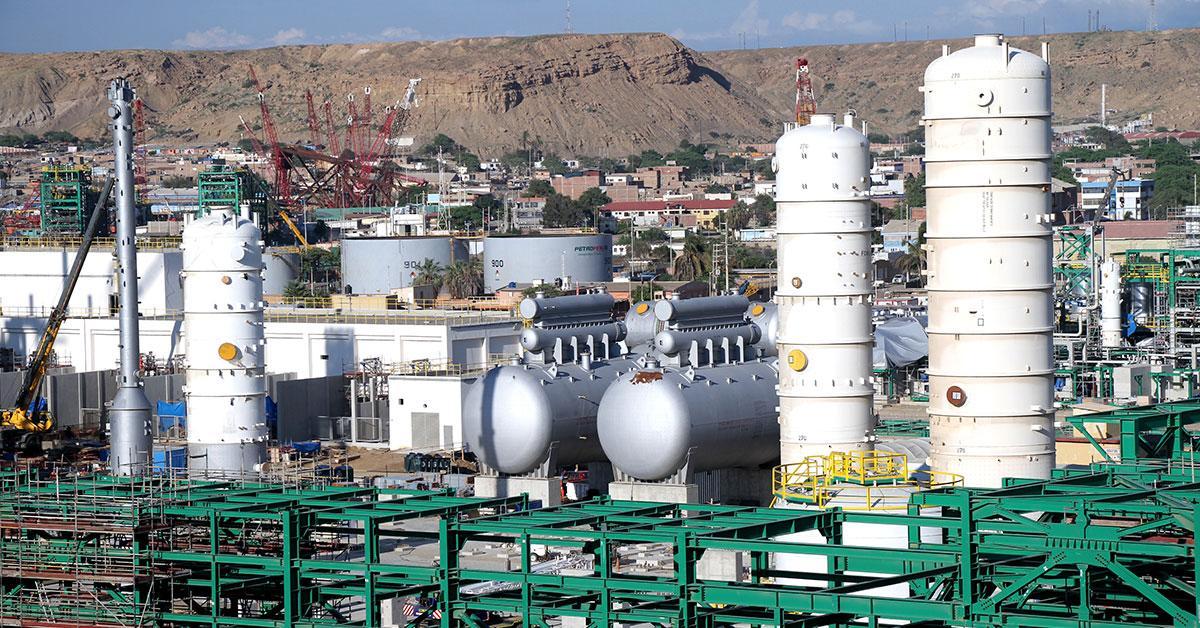Nueva Refinería Talara will operate with technology patented by licensors in Europe and the US.

During his participation in the Peru Energía Norte Digital event, the PETROPERÚ Talara Refinery Modernization Project Manager, Arturo Rodríguez Paredes, announced the benefits and advantages of the New Talara Refinery, the most important energy project in the country that is located in his last stage of construction, with a view to starting its start-up process at the end of next November.
Rodríguez Paredes pointed out that the new PETROPERÚ refining complex will have a processing capacity of 95 thousand barrels per day and will produce fuels with less than 50 parts per million of sulfur for national consumption, counting on state-of-the-art technology supported. by world-class companies.
In this sense, he specified that the Process Units, which have been implemented by the company Técnicas Reunidas, have the solid support of technologies from the companies Axens (France), UOP (USA), ExxonMobil (USA)) and Haldor Topsoe (Denmark). Meanwhile, the Auxiliary Units, under the responsibility of the Cobra-SCL Consortium, have the Haldor Topsoe company as the main licensor. He also indicated that the construction of the New Talara Refinery has the permanent supervision of the CPT Consortium made up of world-class companies IDON (Spain), Summon (United States) and Nippon Koei (Japan).
He explained that, unlike the emblematic Talara Refinery, which operated until 2019 with low complexity (3.76, according to the Nelson conversion complexity index), the New Talara Refinery will have a high complexity (7.84), which will allow the processing of products waste and convert them into valuable refined fuels such as gasoline and diesel. “We will have a stronger refinery, which will operate more efficiently, generating a greater refining margin. In other words, we will have greater profitability and flexibility to process light and heavy crude oils,” he explained.
After reporting on the scheme of the New Talara Refinery, made up of 16 Process Units and five Auxiliary Units packages, he highlighted the construction of complementary works, including the construction of the backup electrical transmission line, the new MU2 Liquid Cargo pier and 21 storage tanks with a capacity of 1.5 million barrels. He pointed out that warehouses, workshops and a modern laboratory have also been built that will be implemented with high-tech equipment to validate the quality of the fuels that will be produced at the New Talara Refinery.
He specified that, at the same time, they have been working on the implementation of risk, security and personnel management systems that contribute to the sustainable operation of the new and modern PETROPERÚ refining complex, which will be the most modern in the country and in the South Pacific.
More complex refineries
Rodríguez Paredes pointed out that, as well as in Peru, in countries such as Colombia, the United States, Russia, France and China, refineries of greater complexity and size are being built to meet the demand for fuels generated from oil, which they will continue to be consumed worldwide for more than 30 years, in a sustained manner, according to the OPEC (Organization of Petroleum Exporting Countries, in its acronym in English).
“At the same time as the closure of refineries that are obsolete, that are not profitable and that produce sulfur fuels, the world is building larger and more complex refineries that are highly profitable and produce clean fuels. We have many examples: Colombia, the USA, Russia, France and China, a country in which six highly complex refineries will come into operation between 2021 and 2022”, he specified.
The construction of the New Talara Refinery has a progress of more than 94.80% and continues underway, complying with the protocols approved and established in the surveillance, prevention and control plans of COVID-19 for this project, which are aligned with the Ministerial Resolution RM-972-2020-MINSA.
During its execution, this project declared of Public Necessity and National Interest has contributed to the treasury, has created jobs and has energized the national, regional and local economy; in addition to contributing to the transfer of the best engineering and construction practices in the world. With the production of clean fuels, when it starts operations, it will contribute to the preservation of the country's air quality and to improve the trade balance.

